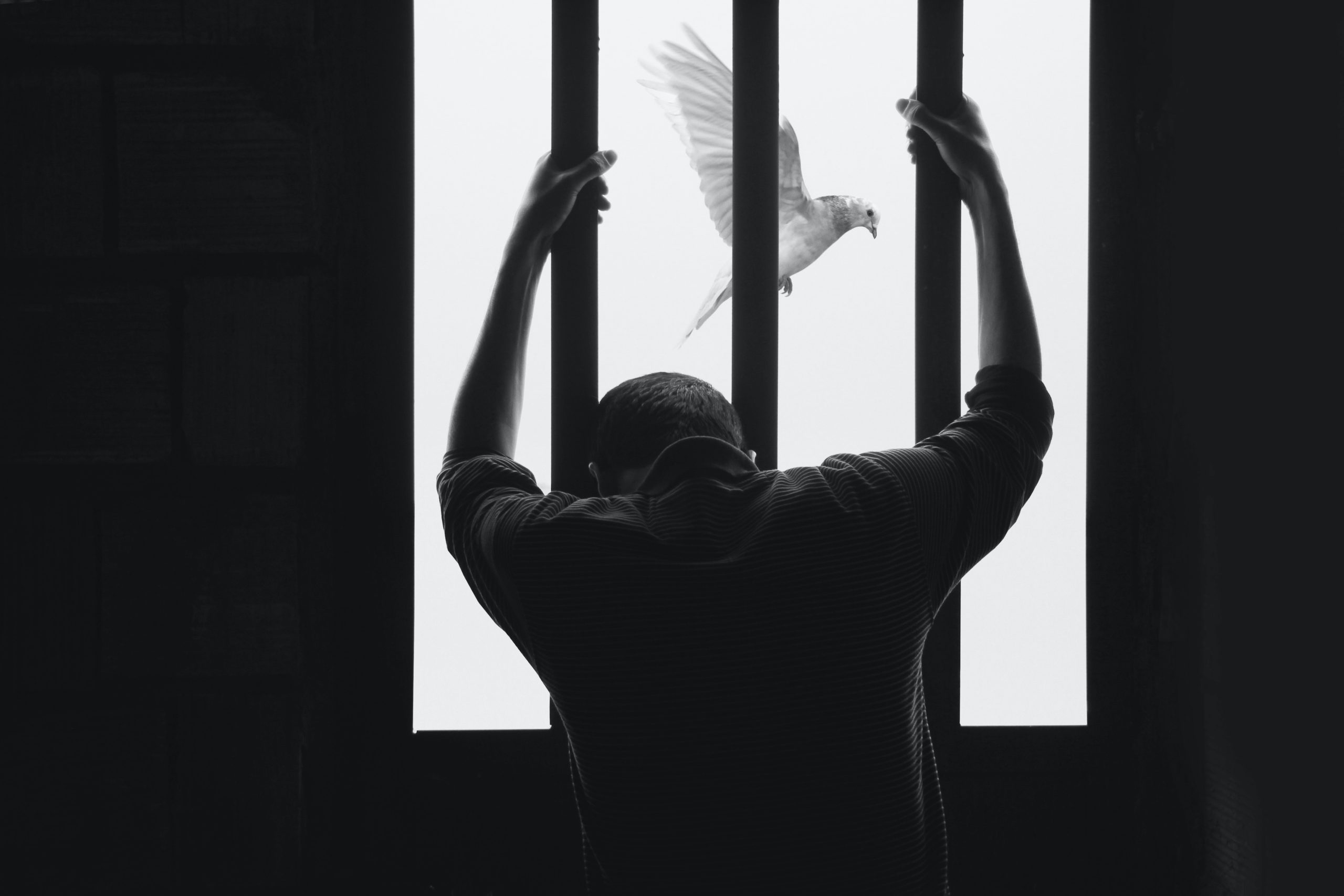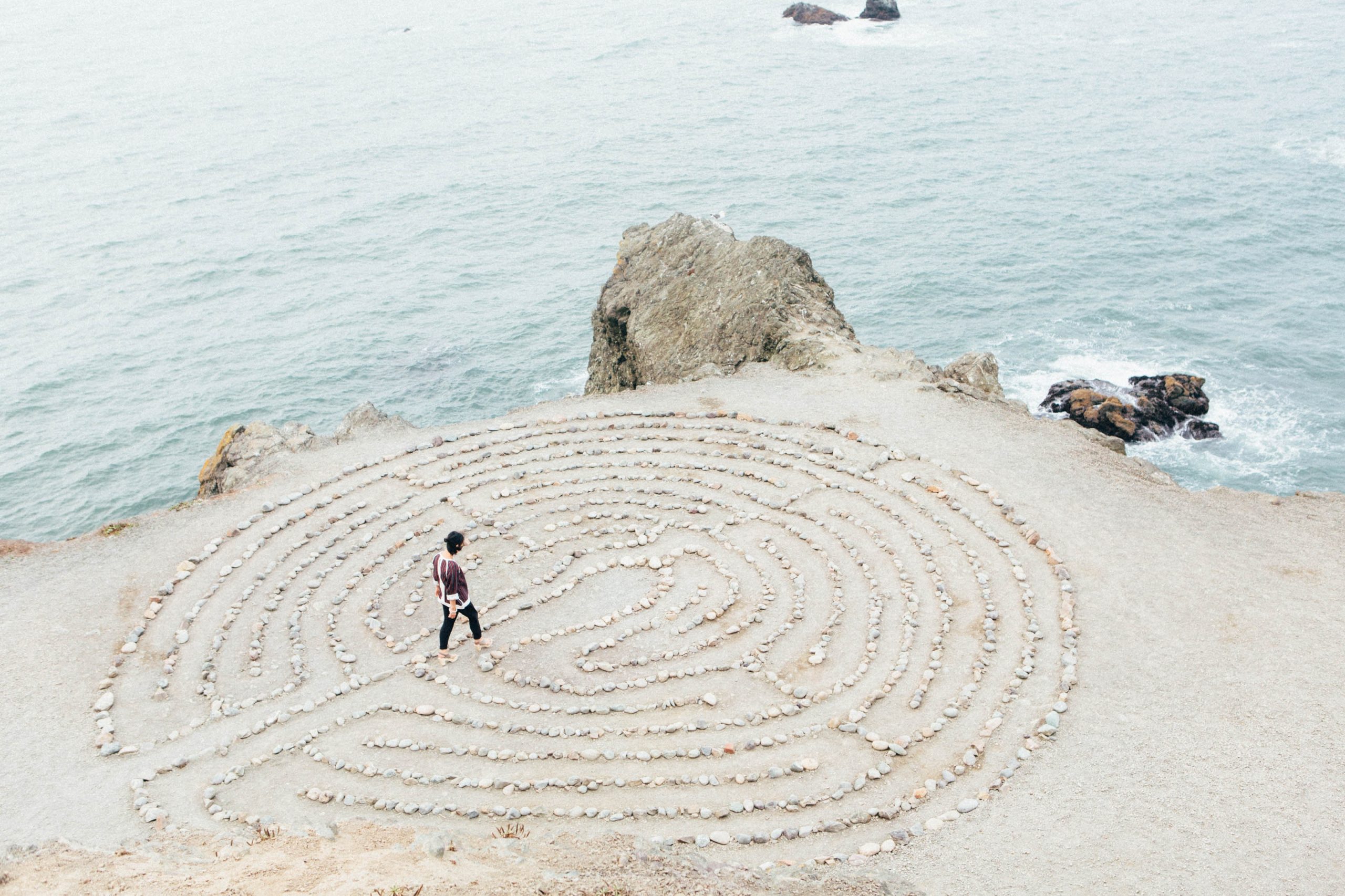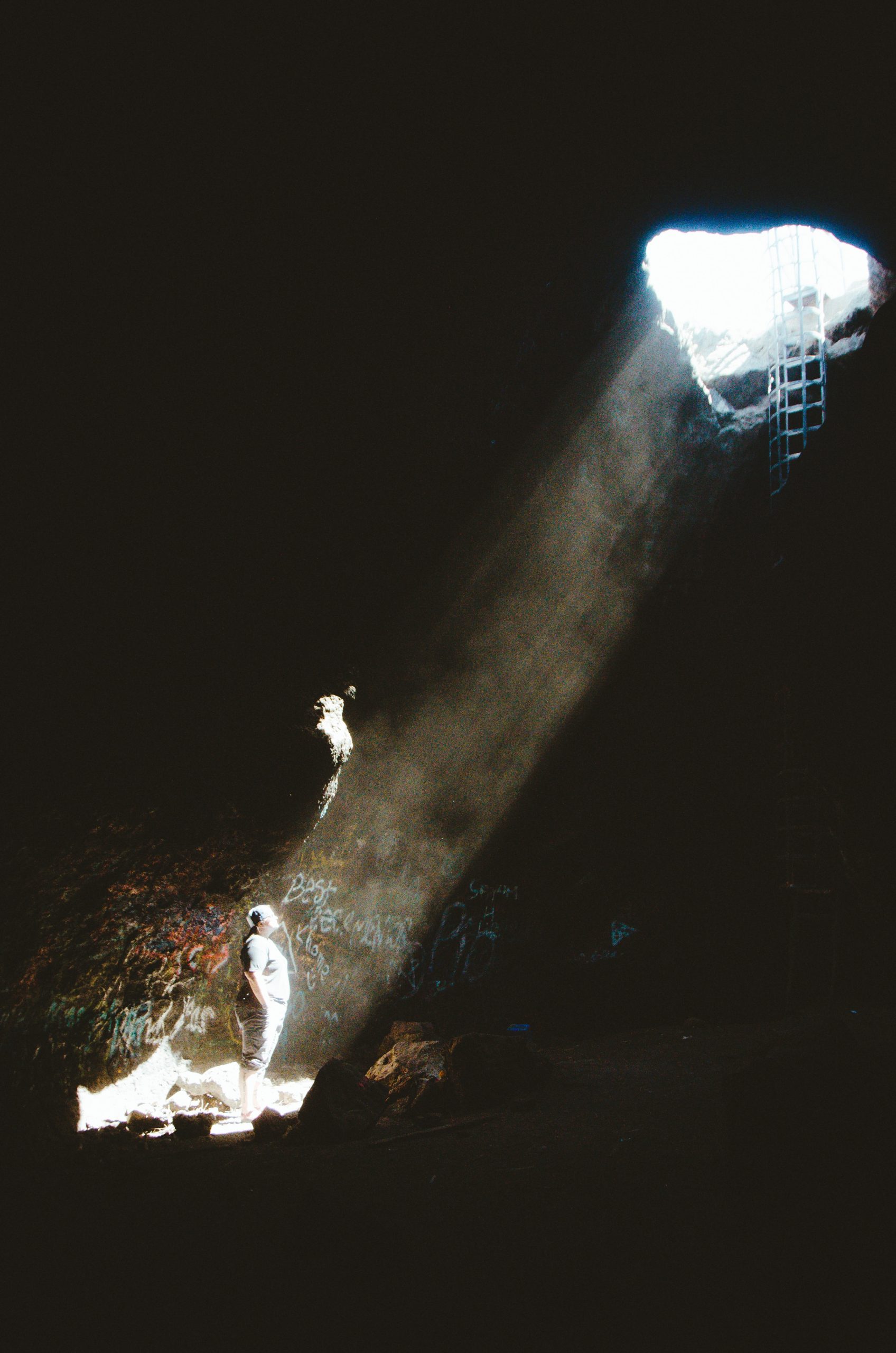
Jesus ceded his final breaths to a phrase that haunts us to this day: “Father, forgive them for they know not what they do.” Witnesses heard this prayer at the foot of a crude wooden cross where Jesus hung for hours following a brutal, public beating. For billions of people this plea represents an unfathomable level of forgiveness. Countless tears have been shed in response to the unwarranted mercy these words conveyed. Yet this prayer also contained an equally powerful message: Jesus had ascribed the brutality he endured to a poverty of self-awareness.
To this day, many of us do not know what we’re doing in this world or to one another. The absence of self-awareness is ubiquitous: A teacher scrawling corrections in red ink on a pupil’s first attempt at poetry;. the wife greeting her husband with a list of things he must do; a husband returning home late and drunk; the smiling drug dealer counting cash; a politician kissing babies with lips that lie; the police officer kneeling on the neck of a dying suspect.
Our goals often blind us to the impact we’re having on the world. To yield greater profits we poison our air, soil and water. We blow up mountains in search of minerals as we overfish the oceans. Our crop yields are more plentiful but contain fewer nutrients. Farm animals are raised indoors and pumped with cocktails containing hormones and antibiotics that we then eat. The absence of self-awareness allows us to think we’re doing just fine.
What Are We Doing Here?

Even our efforts to save the planet lack self-awareness. Whales wash ashore as we disturb the ocean floor to build wind turbines that kill birds. We ignore child labor in poverty stricken lands to mine cobalt and other minerals needed to make our electric cars. And while a few get rich pursuing these so-called green initiatives, entire economies tumble. We destroy our only home, impose financial burdens on the working class and exploit the poor while claiming to benefit the planet – and we get to feel virtuous.
Absent self-awareness we remain oblivious to the outcomes we reap. Political revolution is meaningless without a fundamental change in the human psyche. In The Prophet, mystic poet Kahlil Gibran noted the need for change to take place within. “And if it is a despot you would dethrone, see first that his throne erected within you is destroyed,” he advised. The Beatles echoed this call for inner change over violent overthrow decades later in the song Revolution. “You tell me it’s the institution.
Well, you know, you better free your mind instead,” the Fab Four sang. Given the horrors of Marxist revolutions and other tyrannies to date, these sentiments reflect a degree of self-awareness.
The Chrysalis of Memory

It’s easier to identify the lack of self-awareness in others but challenging to see it within oneself. Most of us operate within a chrysalis of memory. Our interactions with others are filtered through knowledge and beliefs gathered and formed over time. Relying on memory-based knowledge reduces living to a series of automatic reactions to people and events. Patterns emerge that reinforce our beliefs. We see what we believe and believe what we see. This self-reinforcing activity produces alienation, violence, addiction and other self-destructive outcomes. We suffocate psychologically trapped in a cocoon of memory. This is the despot within.
True revolution requires fresh observations and new understandings. One must observe and understand that we are mirrors to each other: what we see in others is a reflection of what exists within ourselves. There is no “me” versus “them.” It’s all in me. As the philosopher Jiddu Krishnamurti explained:
Look within and see how we alienate ourselves – from ourselves. We believe we are generous, knowing we are stingy at times. We insist we are nonviolent but fantasize about beating someone who has crossed us. We claim to care for the environment but break inanimate objects in moments of rage. We imagine ourselves as beings of light and love but banish others from our lives for any perceived infraction.
Watch as you filter through emotions and say “this is me” or “this is not me.” Joy is me, anger is not. Compassion is me, indifference is not. Open heartedness is me, jealousy is not. Fact is, it’s all you. It’s all me. We must stop lying to ourselves if we’re to encounter Truth.
Words are not the things they represent. The word flower is not the vibrantly colored object with the soft, cool petals and earthy aroma. The word anger is not the volatile emotion you fear will find expression. Your memory of a person or event is neither the event nor the person; they exist solely in your mind. The word friend is not the living breathing person for whom you hold affection. When we dwell only in words, memories and images we circumscribe our lives and deny ourselves the abundance of Reality.
Awareness Is the Revolution

The answer to self-isolation is simple, but subtle. Like a Zen koan, the solution requires stillness to present itself. We must learn to accomplish something by doing nothing about it. It is the art of seeing without looking, doing without taking action. I call it motiveless awareness. It is being cognizant of what is without any direction or goal, simple awareness in the pursuit of nothing. Still waters provide the clearest reflection.
A motiveless mindset seems to run counter to Western culture, where we worship achievement. Yet effortlessness was important to Jesus. Take for example this oft-quoted statement: “Consider the lilies of the field, how they grow; they toil not, neither do they spin: And yet I say unto you, That even Solomon in all his glory was not arrayed like one of these.” [Matthew 6:28,29 KJV.]
From the stillness of awareness, you open up to what lies beyond your time-bound consciousness. Perhaps the drone of vehicles traveling a distant highway or the barking of a dog will enter your field of awareness. Your feet may feel the rumble of a passing truck. Your eye may catch multiple shadows cast by a slip of paper on a table. Take in the leaves rustling from a light breeze. There is nothing to do about any of these perceptions. No outcome, no gain or loss, no struggle. They are part of a larger reality we miss when we remain imprisoned within the sphere of our thoughts. Motiveless awareness helps us connect with nature on a deeper level.
Moving From the Outside In

As we allow awareness to explore the world around sensitivity grows. We become comfortable with a dimension of our inner world that lives and communicates non-verbally. We stumble upon our original awareness, the living mind with which we entered this world. One quality of this natural awareness is motivelessness, a state of pure being. Philosophers called it the tabula rasa or blank state. This innate awareness preceded the verbal, thought and memory based mechanism we acquired over time. It is still intact, albeit in need of attention.
Original awareness communicates through feelings, intuition and instinct – not words or complex ideas. Many of us learn to fear it, distrust it and to rely almost exclusively on our intellect. Our minds become an endless stream of words, fears, fantasies and other projections. In the extreme, we react violently against instinct, intuition or emotion. People who feel are deemed weak. Vulnerability is despised. Premonitions are laughed off. We deny ourselves much by stifling natural awareness, a vital source of experience and information.
A Light Which Casts No Shadows

As our awareness matures it sheds light on our inner world. To be sensitive to what one is feeling, thinking and doing as it happens requires a vigilance we may find uncomfortable. Our educational systems do not prepare us for such inner exploration. Yet our inner world is rich and mysterious … the final frontier. Where do our feelings come from? Why do I like or dislike a particular person? What is love?
When self-understanding deepens, possibilities arise for communion with others. As we understand our motivations, fears, impulses and judgments we find peace with the whole span of our rich emotional life. Natural awareness yields compassion, forgiveness and mercy. The gentle light of awareness reveals the proper role of our intellect, ending its tyrannical hold. Where once a closed loop of words, thoughts and projections existed, a space opens where we can feel, intuit and connect.
New understandings yield balance and inner peace, eradicating conflict in our relationships. We become peacemakers. Where we tread, a new community takes root in which vulnerability is esteemed and people feel the impact they’re having moment to moment. Together we create a new society in which Jesus’s final plea reminds us of a world that once was but is no more.